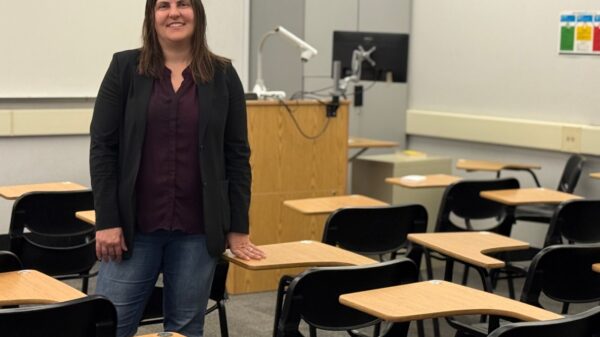Proposed cuts to Grand Forks’ community service grant program are raising alarms among local nonprofit leaders who warn that such reductions could severely impact their operations. The city’s budget for 2026 suggests eliminating funding for crucial initiatives, including the Community Service Grant (CSG) program, which has been instrumental since its inception in 2019.
Everett Jones Sr., Director of the Northlands Rescue Mission, expressed deep concern over the potential cuts, stating, “As far as Northlands Rescue Mission is concerned and our operational expenses, that would be a pretty significant blow. It’s not like we have a surplus of funds that we’re just hoarding. When we apply for a grant, it’s because we need it.”
The proposed budget indicates that several programs, including the CSG, Arts ReGrant, and Special Event funding, will receive zero allocations for the upcoming year. Although the programs’ frameworks, such as policies and procedures, will remain intact, the lack of funding means no grants would be disbursed.
The CSG program operates through a competitive grant process, allowing nonprofits to apply for operational support reviewed by the Community Advisory Committee and the Grand Forks City Council. It often works in conjunction with the Community Development Block Grant (CDBG), which provides federal funds from the United States Department of Housing and Urban Development for various projects.
Currently, the CDBG program has $400,000 available for grants, which is a reduction of $10,000 from the previous year. This decrease in funding poses challenges for organizations like the United Way of Grand Forks and East Grand Forks. Executive Director Heather Novak Fuglem noted that a lack of financial resources would hinder efforts to assist individuals in obtaining necessary documentation for housing.
“It’ll affect us mostly for our homeless families who are trying to get housed into long-term housing,” Novak Fuglem explained. “If we don’t have the capability through CSG for our families-first program to provide funds for rental arrears or to purchase Social Security cards or birth certificates, that’s going to add bigger barriers on to our families and onto United Way.”
In light of these potential cuts, Jones emphasized the need for collaboration between the city and local nonprofits. “We have to be mindful that we are not the whole—we are part of it. So I want to make sure that we are garnering goodwill with the city,” he stated. He expressed hope for a united effort to explore alternative solutions to bridge the gap in funding.
In recent months, the local community has stepped up, with philanthropists providing financial support to cover some of the immediate needs. Jones remains optimistic that this trend will continue, allowing for impactful programs to persist despite budgetary challenges.
The city of Grand Forks has experienced a 12-month rolling average of sales tax collections ranging from $33.8 million to $35.5 million in 2025. Approximately $2.5 million is currently allocated annually to the Economic Development Fund, from which the CSG program and similar initiatives are financed.
The proposed budget reflects increased costs associated with public safety and infrastructure, also funded by sales tax revenues. As the state has introduced a new 3% property tax levy cap, the city aims to reduce its reliance on property taxes.
City Director of Finance Maureen Storstad explained, “That general 1% sales tax that the mayor is recommending shifting a bit on that allocation is because of the need for street capital projects and also the need for a long-term sustainable look with property tax caps and the additional public safety component need in the general fund.”
The allocation of Grand Forks’ sales tax is divided among several categories: 1% supports the general fund, infrastructure fund, and economic development fund; 0.5% is directed toward street and water infrastructure; 0.75% funds event center capital improvements; and a 0.25% charge on restaurant and lodging purchases contributes to the operations of the Alerus Center.
The Grand Forks City Council is scheduled to vote on the preliminary budget on August 4, 2025. As discussions continue, the future of community service grants hangs in the balance, with significant implications for local nonprofits and the communities they serve.




































































